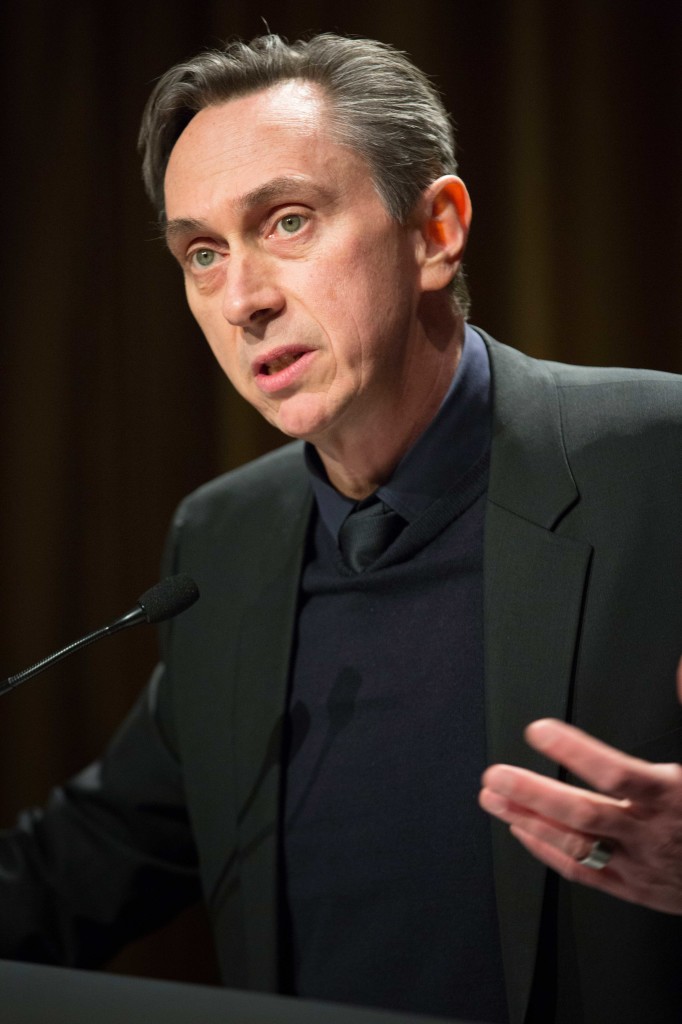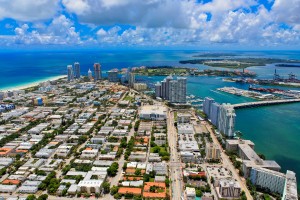The Office for Urbanization: A Conversation with Charles Waldheim
“The natural sciences are concerned with how things are. Design on the other hand is concerned with how things ought to be.”
–Herbert Simon, 1969
In November, the GSD launched the Office for Urbanization, a trans-disciplinary initiative designed to focus the intellectual and practical capabilities of the School on a range of applied design research projects attendant to the contemporary city. The Office’s founding director, Charles Waldheim, John E. Irving Professor of Landscape Architecture, is enthusiastic about the Office’s capacity for impact through topical projects. In fact, faculty and student researchers are already immersed in the Office’s inaugural project.
 According to Waldheim, “Our mandate is to develop speculative and projective urban scenarios through sponsored design research. The Office aspires to reduce the distance between design innovation and societal impact.” As part of the larger Research Advancement Initiative at the GSD, the Office for Urbanization will distinguish itself by focusing on sponsored design research. Its projects will create original knowledge, and provide internal continuity and expanded research capacity for the School. By engaging with international thought leaders and sponsor agencies, the Office is committed to enabling and accelerating societal impact through collaborative, multidisciplinary design research. The Office will aggregate sponsored research projects on urbanization, building capacity for the School on a specific area of inquiry, while supporting faculty and student researchers with the necessary infrastructure to collaborate successfully.
According to Waldheim, “Our mandate is to develop speculative and projective urban scenarios through sponsored design research. The Office aspires to reduce the distance between design innovation and societal impact.” As part of the larger Research Advancement Initiative at the GSD, the Office for Urbanization will distinguish itself by focusing on sponsored design research. Its projects will create original knowledge, and provide internal continuity and expanded research capacity for the School. By engaging with international thought leaders and sponsor agencies, the Office is committed to enabling and accelerating societal impact through collaborative, multidisciplinary design research. The Office will aggregate sponsored research projects on urbanization, building capacity for the School on a specific area of inquiry, while supporting faculty and student researchers with the necessary infrastructure to collaborate successfully.
As part of the larger Research Advancement Initiative at the GSD, the Office for Urbanization will distinguish itself by focusing on sponsored design research.
Since the November launch, the Office has created a physical and administrative hub, with GSD based offices and staff to support their ambitions. As Waldheim explains, “We are focused on building our internal capacity, and have engaged in dialogue with a broad spectrum of potential partners.” From solar orientation and urban form to public health and the public realm, from big data and smart cities to transportation and communication networks, from sea level rise to planetary urbanism, the Office has identified seven research tracks on a diverse array of thematic subjects connected to the challenges of contemporary urbanization, operating under the rubric of ‘ecological urbanism.’ Crafting environmentally sustainable global urban centers that reflect the cultural and social priorities of the societies they inhabit is central to the Office’s ambitions.
 The Center’s inaugural project, The Project on South Florida and Sea Level: Adaptive Strategies for Green Infrastructure, Landscape Ecology, and Cultural Heritage, considers the challenges of South Florida with respect to sea level rise, increased storm events, and other aspects of adaptation to climate change. Co-sponsored by the GSD and the City of Miami Beach, the project will examine the implications of rising sea levels and increased storm events on the economy, ecology, infrastructure, and identity of Miami Beach in relation to its metropolitan and regional contexts. Waldheim will direct the project with faculty support from Rosetta Elkin, Assistant Professor of Landscape Architecture. According to Waldheim, “The study will develop design strategies and scenarios to anticipate future potentials, and to mitigate present threats facing one of the world’s most recognizable and singularly valuable cultural landscapes. It aims to reveal the potential for ecological and infrastructural strategies as alternatives to large single purpose engineering solutions.”
The Center’s inaugural project, The Project on South Florida and Sea Level: Adaptive Strategies for Green Infrastructure, Landscape Ecology, and Cultural Heritage, considers the challenges of South Florida with respect to sea level rise, increased storm events, and other aspects of adaptation to climate change. Co-sponsored by the GSD and the City of Miami Beach, the project will examine the implications of rising sea levels and increased storm events on the economy, ecology, infrastructure, and identity of Miami Beach in relation to its metropolitan and regional contexts. Waldheim will direct the project with faculty support from Rosetta Elkin, Assistant Professor of Landscape Architecture. According to Waldheim, “The study will develop design strategies and scenarios to anticipate future potentials, and to mitigate present threats facing one of the world’s most recognizable and singularly valuable cultural landscapes. It aims to reveal the potential for ecological and infrastructural strategies as alternatives to large single purpose engineering solutions.”
The emergent topic of urban adaptation to the effects of climate change is among the most pressing areas of research for those engaged in the built environment.
The emergent topic of urban adaptation to the effects of climate change is among the most pressing areas of research for those engaged in the built environment. Over the past several years, the North American discourse on the subject has sensibly focused on New Orleans post-Katrina and New York post-Sandy. While these cases have provided unique contexts for the advancement of disciplinary knowledge, professional practices, and societal engagement, they have reinforced coastal defense through the deployment of large hydrological engineering systems. By contrast, much of the North American coastline, and its associated urbanization, including South Florida, resists such approaches by the realities of their geography, hydrology, and patterns of urbanization. In addition to the South Florida project, the Office builds upon the experience gained through two recent sponsored design research projects: A Sustainable Future for Exuma and the AECOM Common Frameworks: Rethinking the Developmental City in China projects in Xiamen, Macau, and Taiqian.
The South Florida project is tied closely to GSD pedagogy. This past fall, Elkin taught a research seminar, South Florida Rise and Sink: the Case of Miami Beach, in which GSD students were introduced to the challenges of sea level rise on the Miami Beach community as seen through the lens of experts from a variety of fields, including climate science, disaster mitigation, environmental law, cinematography, plant biology, coastal geology, and engaged in discussions with other design professionals. This spring semester, Elkin and Waldheim will continue their research, offering an advanced options studio to the same set of students, allowing them to develop and propose long-term, strategic solutions for Miami Beach that focus on green infrastructure, landscape ecology, and cultural heritage. The seminar and studio will be repeated next year, culminating in an extensive research report that will be presented during an Office for Urbanization conference in Cambridge, intended to share the research team’s findings and expand the discourse.
By providing a platform for the sharing and advancement of knowledge on the complex topic of cities, the Office for Urbanization will not only expose synergies between existing research projects but also encourage innovation across disciplines through collaboration. Waldheim reflects upon future collaborations with experts and sponsoring agencies, “The Office imagines alternative and better urban futures through applied design.”
South Florida Rise and Sink: the Case of Miami Beach seminar was made possible through the generosity of the City of Miami.
